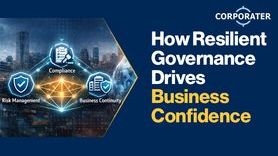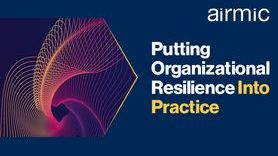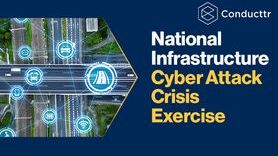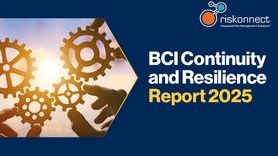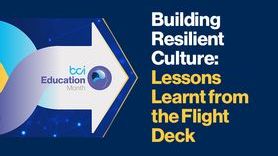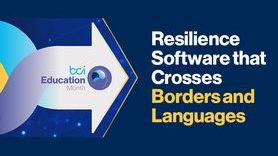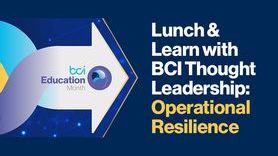Rob Cooke MBCI – a new Leader for the BCI East Midlands Chapter
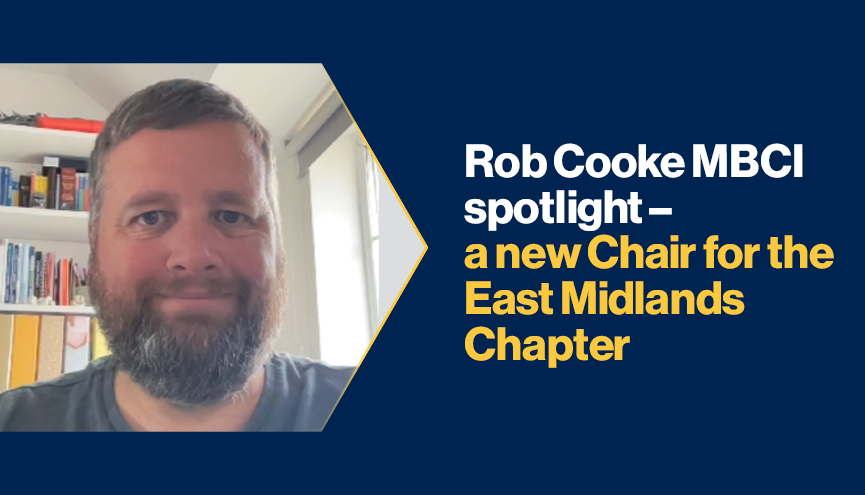
In this spotlight interview, we are pleased to introduce Rob Cooke MBCI as the new Leader of the BCI East Midlands Chapter. Here, we discuss the potential impact of rolling blackouts, how to build a resilience mindset, and what organizations can learn from regulated industries.
Could you please tell us about your current role, previous experience, and how you got into Business Continuity (BC)?
I am currently the Head of Operational Resilience at Griffin. Previous to Griffin, I have worked at a number of companies, both as a permanent employee and contractor. This includes the Ocado Group, Refinitiv, Barclays, RBS, Royal London, Co-op Bank and IBM, amongst others. The majority of these roles have been in Disaster Recovery & Business Continuity, which has given me a lot of experience at seeing how the Good Practice Guidelines (GPG) can be applied and how there is no “right way”. You need to decide what works best for you and your organization.
My first experience of the world of BC was during my time at Midland Heart back in 2003. I was an Infrastructure Engineer specialising in Citrix (a hosting solution) and I was asked to support the BC Manager during a simulation test. I was bitten by the BC bug and have been involved in the field ever since.
What do you see as the emerging threats and risks, as well as the trending topics, in your region?
With the current energy crisis, I believe that the risk of rolling blackouts could become a reality. For those, like me, who work from home into the evening this could impact work productivity not only regionally but across the country as a whole.
I feel there is a lot we can do collectively to help reduce this risk, such as turning off plugs and devices when not in use, but a stronger voice across our industry could help to support and guide the energy industry into ways to better prepare the public for this.
What has been one of your greatest challenges in this sector?
Personally I think the greatest challenge across our entire industry is engagement. In regulated industries, like Finance and Pharmaceutical, building resilience will always be easier but for unregulated industries it tends to be seen as a “nice to have” or an “insurance policy”.
COVID-19 has helped bring our skills to the fore but on the flip side it has given some companies the belief that they are now “bulletproof”, as they managed to continue or even grow during this time. Work area recovery has probably seen the biggest change as working from home has become a more recognised solution.
As I mentioned above, working from home does introduce its own risks which now need to be considered but I have found that there seems to be a systemic belief that resilience doesn’t need to be worked on or financed as much as I feel it should.
What changes would you like to see in this industry?
I would love to see a greater push for non-regulated industries to adopt the level of rigour and compliance that we are starting to see in regulated industries. I am not saying that resilience in finance is perfect but, with the introduction of the Operational Resilience regulations in 2021, the journey is now well underway to embed resilience into the culture and DNA of businesses.
If there was a way to push this level of focus across all businesses then I think we will all be able to sleep a little better.
What piece of advice can you share for others working in BC and Resilience?
I don’t claim to be an expert, and I recognise that there are a lot more intelligent folks in this profession, but personally I have found adopting a “Hearts & Minds” attitude to resilience has helped me get to where I am today.
The term has a lot of valid meaning for us in our world. We can all see examples where “what if'' could be used, but when talking to the decision makers you need to relate to their mindset of growing the business and reducing costs. Try to determine where you can pitch your conversations to help bring the message to the forefront of their minds. Is there a specific example that has impacted your industry or company? What about your competitors, has there been an incident that has impacted them that you can use to help formulate your own message?
It is also important to think of the personal elements. Everyone is busy and are often being pulled from job to job, so look at how you can introduce greater resilience into their duties without impacting how they deliver their job. For example, if a technical team is having to do regular updates to services, see if they can update the secondary system before failing the service over and updating the primary system as this will help prove resilience at the same time.
Also, what about power or generator tests? Look at ways that you can introduce a practical exercise or call cascade at the same time - maybe even practise a fire drill.
Ultimately your job is to build resilience into the day job, culture, and DNA of the business. If you can do this on a tight budget then you will become very popular with the leadership.
What upcoming activities are being planned within the Chapter?
The East Midlands Chapter committee are looking to create an annual theme, like "Pillars of Operational Resilience", for 2023 with each meeting focussing on a different area of Op Res.
With four Chapter Meetings being planned, we are looking at hybrid opportunities so we can see a return to face-to-face meetings and also cater for those further afield who are unable to travel but would still want to engage with the meeting and topics being discussed.
Anything else you want to add?
It would be short sighted of me not to use this opportunity to ask for help. As with all the Chapters, we are on the hunt for host venues across the region for our events and for speakers to present. I would like to use this opportunity to ask for support from my fellow industry colleagues and if you are able to help with a venue or would like to give a talk, please drop us an email to: [email protected]
As a committee we are also looking for new members. If anyone would like to join our committee please drop us an email as we would love to add to the fantastic committee we already have.
Finally, I want to say a massive thank you to Mark Cadman for his service as Chair of the East Midlands Chapter over the previous few years. As well as a big thanks to Neil, Kelly, Sarah & David, our current committee members, for their continued support and great ideas to help promote resilience to the East Midlands and its members.


